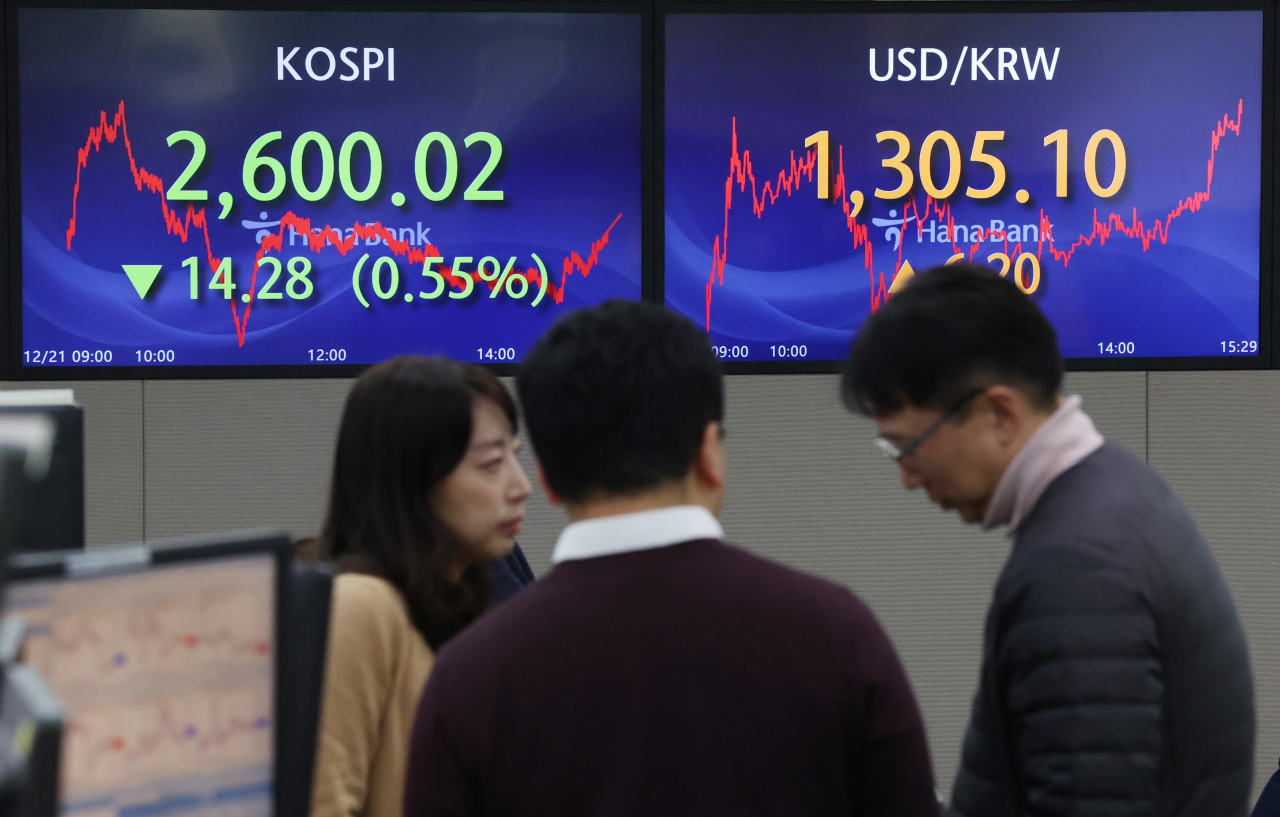
The South Korean government will raise the threshold for major shareholders' capital gains tax to those holding 5 billion won ($3.83 million) worth of stocks from the current 1 billion won, the Finance Ministry announced Thursday.
The Ministry of Finance will revise the capital gains tax regulation in the Enforcement Decree of the Income Tax Act. As it falls under an enforcement ordinance, the government does not have to earn approval from the National Assembly.
Korea currently levies capital gains tax on shareholders who own stocks worth more than 1 billion won in a single company or on those whose stake exceed 1 percent of total shares listed on the benchmark Kospi or 2 percent of total shares listed on the secondary Kosdaq market.
Major shareholders who own listed stocks are subject to a tax rate of 20 percent for capital gains generated from transfer of stocks worth less than 300 million won. For gains surpassing 300 million won, the tax rate is raised to 25 percent.
Under the revision, those holding less than 5 billion won in shares of a single company will be exempt from the tax from next year, while the other regulations will be maintained at current level.
Capital gains tax has been deemed to be one of the major drivers behind the annual year-end selling spree, as investors dump stocks for tax evasion near the tax base date, two days before the last trading day of 2023, which falls on Dec. 26 this year.
The tax has been imposed since 2000 for investors who hold shares worth more than 10 billion won in a single company, but the bar has been continuously lowered to 5 billion won in 2013, 2.5 billion won in 2016, 1.5 billion won in 2018 and to 1 billion won in 2020.
"The mobility (of money) in the financial market is strong. If heavy tax is imposed on one side, assets will move to other areas or countries with higher profitability," an official from the Finance Ministry said at a press briefing held Thursday. “The measure was made in consideration of the difficulties (of the capital market) amid persistent high rate."
According to the National Tax Service, 7,045 people reported capital gains tax totaling 2.09 trillion won last year, comprising some 0.05 percent of the total number of retail investors. The Finance Ministry further explained Thursday that it cannot give an exact number of investors who would be exempt from the taxation through the revised law.
“These days, holding 1 billion won in shares is too small an amount to be considered a majority shareholder,” said Sung Tae-yoon, an economics professor at Yonsei University. “The threshold should be raised further to keep up with the changing times.”
The Yoon Suk Yeol government had been weighing on easing the capital gains tax, as it was one of the pledges from Yoon’s presidential campaign. It even proposed to raise the bar to 10 billion won and axe the stake requirements last year, but faced heavy criticism from opposition parties who said the measure only “cuts taxes for the rich.”
As the general election slated for April nears, the Yoon administration has been pushing to elevate the local stock market to woo voters, implementing a ban on short selling from November.
While Korea has been seeing a tax deficit totaling over 52 trillion won this year, there are concerns that the lowered standard for capital gains tax may lead to worsened tax revenue for next year.
"Though the rule has been eased to 5 billion won, those who are paying much higher taxes would still be subject to taxing, as their share holdings either exceed 5 billion won or they own larger stakes. It is unlikely to have much impact on tax revenue," the official from the Finance Ministry said.
The revision is to be passed at a Cabinet meeting slated for Tuesday. The eased rules will come into force starting Jan. 1.
Meanwhile, despite the tax revision plan introduced to boost the local stock market, the Kospi closed at 2,600.02 points on Thursday, down 14.28 from the previous trading day. The Kosdaq wrapped up at 859.44 points, showing a decrease of 3.54



















![[Today’s K-pop] Treasure to publish magazine for debut anniversary](http://res.heraldm.com/phpwas/restmb_idxmake.php?idx=642&simg=/content/image/2024/07/26/20240726050551_0.jpg&u=)